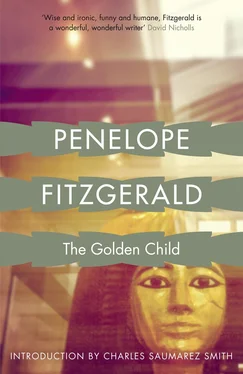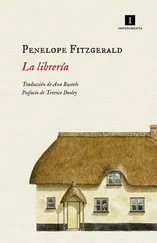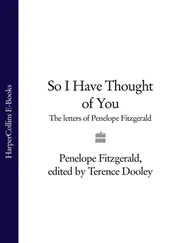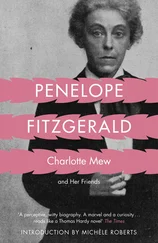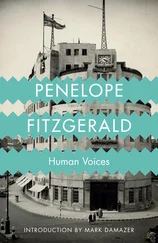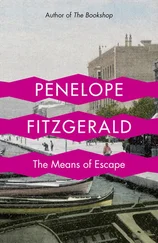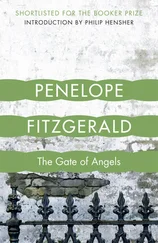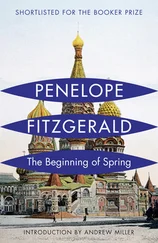PENELOPE FITZGERALD
The Golden Child
Dedication Dedication Penelope Fitzgerald: Preface by Hermione Lee, Advisory Editor Introduction Chapter 1 Chapter 2 Chapter 3 Chapter 4 Chapter 5 Chapter 6 By the Same Author Copyright About the Publisher
For Desmond
Contents
Cover
Title Page PENELOPE FITZGERALD The Golden Child
Dedication Dedication Dedication Penelope Fitzgerald: Preface by Hermione Lee, Advisory Editor Introduction Chapter 1 Chapter 2 Chapter 3 Chapter 4 Chapter 5 Chapter 6 By the Same Author Copyright About the Publisher For Desmond
Penelope Fitzgerald: Preface by Hermione Lee, Advisory Editor
Introduction
Chapter 1
Chapter 2
Chapter 3
Chapter 4
Chapter 5
Chapter 6
By the Same Author
Copyright
About the Publisher
Penelope Fitzgerald Preface by Hermione Lee, Advisory Editor
When Penelope Fitzgerald unexpectedly won the Booker Prize with Offshore , in 1979, at the age of sixty-three, she said to her friends: ‘I knew I was an outsider.’ The people she wrote about in her novels and biographies were outsiders, too: misfits, romantic artists, hopeful failures, misunderstood lovers, orphans and oddities. She was drawn to unsettled characters who lived on the edges. She wrote about the vulnerable and the unprivileged, children, women trying to cope on their own, gentle, muddled, unsuccessful men. Her view of the world was that it divided into ‘exterminators’ and ‘exterminatees’. She would say: ‘I am drawn to people who seem to have been born defeated or even profoundly lost.’ She was a humorous writer with a tragic sense of life.
Outsiders in literature were close to her heart, too. She was fond of underrated, idiosyncratic writers with distinctive voices, like the novelist J. L. Carr, or Harold Monro of the Poetry Bookshop, or the remarkable and tragic poet Charlotte Mew. The publisher Virago’s enterprise of bringing neglected women writers back to life appealed to her, and under their imprint she championed the nineteenth-century novelist Margaret Oliphant. She enjoyed eccentrics like Stevie Smith. She liked writers, and people, who stood at an odd angle to the world. The child of an unusual, literary, middle-class English family, she inherited the Evangelical principles of her bishop grandfathers and the qualities of her Knox father and uncles: integrity, austerity, understatement, brilliance and a laconic, wry sense of humour.
She did not expect success, though she knew her own worth. Her writing career was not a usual one. She began publishing late in her life, around sixty, and in twenty years she published nine novels, three biographies and many essays and reviews. She changed publisher four times when she started publishing, before settling with Collins, and she never had an agent to look after her interests, though her publishers mostly became her friends and advocates. She was a dark horse, whose Booker Prize, with her third novel, was a surprise to everyone. But, by the end of her life, she had been shortlisted for it several times, had won a number of other British prizes, was a well-known figure on the literary scene, and became famous, at eighty, with the publication of The Blue Flower and its winning, in the United States, the National Book Critics Circle Award.
Yet she always had a quiet reputation. She was a novelist with a passionate following of careful readers, not a big name. She wrote compact, subtle novels. They are funny, but they are also dark. They are eloquent and clear, but also elusive and indirect. They leave a great deal unsaid. Whether she was drawing on the experiences of her own life – working for the BBC in the Blitz, helping to make a go of a small-town Suffolk bookshop, living on a leaky barge on the Thames in the 1960s, teaching children at a stage-school – or, in her last four great novels, going back in time and sometimes out of England to historical periods which she evoked with astonishing authenticity – she created whole worlds with striking economy. Her books inhabit a small space, but seem, magically, to reach out beyond it.
After her death at eighty-three, in 2000, there might have been a danger of this extraordinary voice fading away into silence and neglect. But she has been kept from oblivion by her executors and her admirers. The posthumous publication of her stories, essays and letters is now being followed by a biography ( Penelope Fitzgerald: A Life , by Hermione Lee, Chatto & Windus, 2013), and by these very welcome reissues of her work. The fine writers who have provided introductions to these new editions show what a distinguished following she has. I hope that many new readers will now discover, and fall in love with, the work of one of the most spellbinding English novelists of the twentieth century.
The Golden Child was Penelope Fitzgerald’s first novel, written in 1975, the year that her biography of Edward Burne-Jones was published. She wrote it as relaxation from her next task of writing a biography of her father and three of her uncles, the Knox Brothers, whose high-minded attitude to literature and life had so influenced her upbringing (her father was editor of Punch and her grandfather Bishop of Manchester).
Fitzgerald had had half a lifetime of struggle, bringing up three children, working as a part-time teacher in two establishments, Queen’s Gate School in Kensington and Westminster Tutors and, after the family home (a barge moored at Chelsea Reach) sank, moving to a council house in Clapham. Her husband, Desmond, an Irish, ex-Guardsman lawyer, whom she had met at Oxford when he was good looking and sociable, later took to drink, and ended up working as a clerk in Lunn Poly, a travel agency.
In her late fifties (she was born in 1916), with her three children grown up, she was at last able to do what she had always wanted and planned to do since getting a first-class degree in English at Somerville College, Oxford, which was to write. Desmond was dying of cancer and she later claimed to have written the book ‘to amuse my husband when he was ill’. He died in August 1975; The Golden Child, published in 1977, was dedicated to him.
For her first novel, Fitzgerald decided to explore the comic possibilities of a story about the British Museum, which she loved and knew well as a visitor, tramping through the great galleries with the children during their school holidays, using it as a place of retreat on her afternoons off from teaching, attending lunchtime lectures. But she wasn’t just interested in the objects in the museum: clearly, she had also been observing the foibles of the staff, the self-importance of the warders, full of gossip as to what was going on in other parts of the museum, filling in their leave forms whilst not paying attention to the visitors, together with the grandee keepers of departments, who had offices behind the scenes. She knew, without necessarily having been told, the tensions between those who loved the objects on display with an unhealthy passion and those who realised that their responsibilities included looking after, and sometimes entertaining, visitors. Her imagination had been able to intuit the backstairs intrigues, the tragi-comic ambitions and the petty rivalries of a great institution.
Fitzgerald’s imagination also drew on the phenomenon of the Tutankhamun exhibition, which was held at the British Museum in 1972 and which had been a spectacular, unprecedented and still unequalled public success. It had exceptionally long visiting hours, open until 9 o’clock in the evening every day, and was seen by over a million and a half people over a period of seven months. Fitzgerald is known to have gone to the exhibition more than once, and had presumably queued, perhaps with her pupils. She discovered, which is true of any great blockbuster, that half the experience and some of the enjoyment, is in the queuing, the sense of anticipation and the camaraderie, the idea of a pilgrimage to witness a group of objects which are in themselves deeply mysterious. She liked to entertain the notion that the exhibition was a fraud: it was actually hard to see the objects properly because of the low level of lighting. She realised how easy it would have been to trick the visitors, and this sparked her imagination.
Читать дальше
